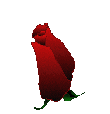
extracts from 'A Vindication of Natural Diet':
(originally written as notes for Queen Mab but later published separately)
Man, and the other animals whom he has afflicted with his malady or depraved
by his dominion, are alone diseased. The Bison, the wild Hog, the Wolf, are
perfectly exempt from malady, and invariably die either from external violence
or from mature old age. But the domestic Hog, the Sheep, the Cow, the Dog, are
subject to an incredible variety of distempers, and, like the corruptors of
their nature, have physicians who thrive upon their miseries. The super-eminence
of man is, like Satan's, the super-eminence of pain; and the majority of his
species doomed to poverty, disease and crime, have reason to curse the untoward
event that, by enabling him to communicate his sensations, raised him above
the level of his fellow animals. But the steps that have been taken are irrevocable.
The whole of human science is comprised in one question: How can the advantages
of intellect and civilisation be reconciled with the liberty and pure pleasures
of natural life? How can we take the benefits and reject the evils of the system
which is now interwoven with the fibre of our being? I believe that abstinence
from animal food and spiritous liquors would, in a great measure, capacitate
us for the solution of this important question.
I address myself not to the young enthusiast only, but to the ardent devotee
of truth and virtue the pure and passionate moralist yet unvitiated by the contagion
of the world. He will embrace a pure system from its abstract truth, its beauty,
its simplicity, and its promise of wide extended benefit. Unless custome has
turned poison into food, he will hate the brutal pleasures of the chase by instinct.
It will be a contemplation full of horror and disappointment to the mind that
beings, capable of the gentlest and most admirable sympathies, should take delight
in the deathpangs and last convulsions of dying animals.
from 'On the Vegetable System of Diet'
It is evident that those who are necessitated by their profession to trifle
with the sacredness of life, and think lightly of the agonies of living beings,
are unfit for the benevolence and justice which is required for the performance
of the offices of civilised society. They are by necessity brutal, coarse, turbulent
and sanguinary. Their habits form an admirable apprenticeship to the more wasting
wickedness of war, in which men are hired to mangle and murder their fellow
beings by thousands, that tyrants and countries may profit. How can he be expected
to preserve a vivid sensibility to the benevolent sympathies of our nature,
who is familiar with carnage, agony and groans? The very sight of animals in
the fields who are destined to the axe must encourage obduracy if it fails to
awaken compassion. The butchering of harmless animals cannot fail to produce
much of that spirit of insane and hideous exultation in which news of a victory
is related altho' purchased by the massacre of a hundred thousand men.
If the use of animal food be, in consequence, subversive to the peace of human
society, how unwarrantable is the injustice and barbarity which is exercised
toward these miserable victims. They are called into existence by human artifice
that they may drag out a short and miserable existence of slavery and disease,
that their bodies may be mutilated, their social feelings outraged. It were
much better that a sentient being should never have existed, than that it should
have existed only to endure unmitigated misery. (The attachment of animals to
their young is very strong. The monstrous sophism that beasts are pure unfeeling
machincs, and do not reason, scarcely requires a confutation.)